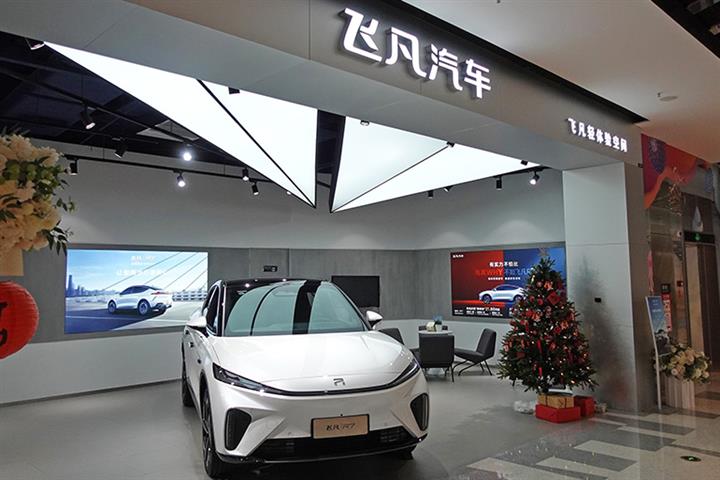 SAIC’s EV Marque Rising Auto Aims to Turn Profitable in 2025
SAIC’s EV Marque Rising Auto Aims to Turn Profitable in 2025(Yicai Global) March 31 -- Despite Rising Auto's sluggish sales and price cuts, the electric vehicle brand under Chinese carmaker SAIC Motor still aims to become profitable in 2025.
Being profitable is a huge challenge for all new energy vehicle makers, said Wu Bing, general manager of SAIC and chief executive of Rising Auto. The winners and losers have yet to be determined, he added.
Rising Auto's performance has been disappointing this year. According to the China Passenger Car Association, only 702 R7s sold in the first two months. Worse-than-expected R7 sales caused the price of its newest model, the F7, to sink CNY50,000 to CNY80,000 (USD7,290 to USD11,660) to between CNY209,900 and CNY301,900 (USD 30,600 and USD44,015) from its presale price.
Rising Auto depends on SAIC's powerful resource advantage, controls, and managed technical development and manufacturing costs, Wu noted. By 2025, the situation regarding raw material prices, batteries, and other factors will be different, he added.
As competition in the domestic NEV market has become more intense, startups do not have the room for trial and error, but can only hope that models with higher cost-performance ratios can open the market, according to auto industry analysts.
2023 is the year of change for NEVs, Wu said, noting that Shanghai-based Rising Auto needs to have competitive products to achieve a breakthrough.
Low prices and the price war in the Chinese auto market, the world’s biggest, only put more pressure on NEV makers to turn profitable. This year's complicated environment may accelerate the elimination of some less competitive players with smaller sales volume and tight funds, Cui Dongshu, secretary general of the CPCA, recently told reporters.
Editors: Zhang Yushuo, Futura Costaglione